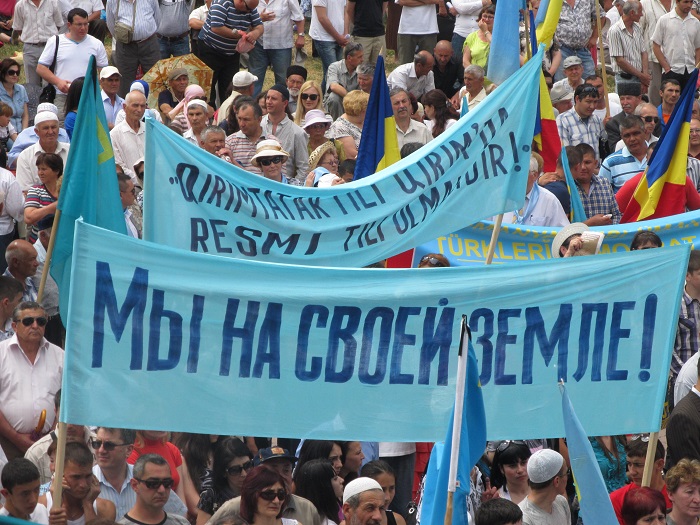At a time when criticizing Ukraine for mistakes it has made in pursuing its goals is a cottage industry not only in Ukraine and Russia but in the West, Maksim Artemyev, a commentator for Forbes.ru, identifies eight major mistakes Moscow has made that Russia has made in its Ukrainian policy.
What makes his list both especially valuable and potentially influential is that it is based not on a moral assessment of Russia’s violation of international law but rather on a consideration of the ways in which Vladimir Putin has taken actions that undercut Russia’s interests.
Artemyev’s eight Russian mistakes in Ukraine are as follows:
- First of all, the annexation of Ukraine and the manner in which it was done with a highly irregular referendum increasingly appears to be not a well-considered policy, but “a nervous improvisation with consequences” that few in Moscow reflected upon: a permanent spat with Ukraine and the West, incredible new government burdens, and no real gains.
- Second, Moscow adopted a constantly shifting and ambivalent position on the Donbas, first encouraging people there to think they could become part of Russia and then rejecting that idea while deepening its own direct military involvement there, something that “only deepened and prolonged the crisis” without benefit to Moscow.
- Third, Moscow’s bold talk about how sanctions would work to Russia’s benefit and even more its introduction of counter-sanctions have turned out to be nothing more than a bluff not only for the country as a whole but for the elite. “The parasitic essence of the ruling class has remained unchanged: its representatives as before keep their savings in the West,” regardless of what happens to Russia. As a result, Artemyev continues, “the economic growth of the last decade has degenerated into stagnation and depression,” to a situation like when Putin came to power with a weak ruble, a collapsing infrastructure, and all talk about improving the lives of people put off for a long time to come. And Moscow failed to see that “the collapse of Ukraine is the collapse of Russia, a hit on its own economy.” The two countries remain to this day so inter-connected that this could not be otherwise, but the Russian planners of the Ukrainian adventure utterly failed to take that into account.
- Fourth, he says, “the anti-Maidan hysteria” of the Ukrainian campaign has become “the occasion for the adoption of a number of draconian laws and government decisions on the media and the Internet which not only reduce freedom of speech but have the effect of throwing Russia ever further behind the West.
- Fifth, the Russian government’s propaganda has “lowered the level of intellectual life” in Russia by promoting “black-white thinking and the psychology of ‘a besieged fortress’” and the denial of the obvious – as when Moscow says Russian troops are not in Ukraine – is contributing to “duplicity and schizophrenia.” All this will cause Russia to fall further and further behind.
- Sixth, Artemyev says, the war has led, not surprisingly, to a dramatic rise in the role of military and other security officials in the Russian government, something that has the effect of reducing attention to all the country’s problems which are not directly connected with the conflict.
- Seventh, and perhaps especially seriously for the future, as a result of its use of volunteers and irregular forces in the Donbas, the Kremlin has created a situation in which “the monopoly of the state on arms and force has been violated,” something that could threaten Russia from within and that is already further alienating Russia’s neighbors.
- And eighth, Moscow’s demand for the federalization of Ukraine is extraordinarily “shortsighted” because it means that the Donbas will be divided and will get fewer resources from Kyiv than would otherwise be the case, as the experience of centralized states in Europe with significant regions shows.
As a result of all these mistakes, Artemyev says, “a regime on the banner of which is written ‘stability and no accidents’ has in a paradoxical way made a choice in favor of the unpredictable.” And that unpredictability, he suggests, will rebound against and inside Russia as a result.
“The number of risks is growing exponentially,” he writes, noting that “already today the Kremlin is forced to coordinate its moves with yesterday’s marginals, the leaders of the “DNR” and “LNR.”” Had Moscow distanced itself from the events of the Maidan rather than gotten involved in the way that it has, it might have avoided many of these problems.
But that is not what has happened, and Moscow’s efforts to keep Ukraine from moving toward the West have proved to be “too costly” for Russia itself, not only because of what they have meant in terms of relations with the rest of the world, including Russia’s other neighbors, but perhaps equally important in terms of what they mean for Russia itself.








